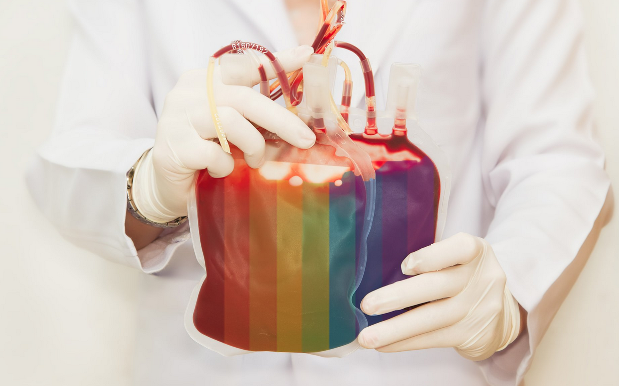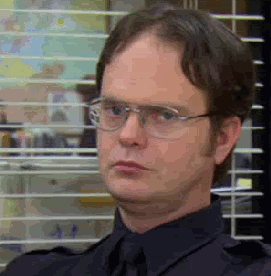
I’ve never donated blood.
While I spent the first two-thirds of my life polarised by a fear of needles, I’ve spent the last seven years spontaneously covering myself in a number of questionable tattoos and enjoying the occasional perks of being a sexually active gay man.
Which means that for as long as I’ve reservedly embraced the stomach-sinking prick of needles, I’ve been legally unable to donate blood.
Which sucks for any number of reasons – not least because there’s a notable shortage of blood in this country, with the Red Cross Australia only having a few days worth at any given time.
It’s not only gay men; my mother can’t donate blood due to her epilepsy – and neither can any one of my friends who have worked in the sex industry over the last twelve months. But for gay men, it feels personal. It’s stigmatising. It paints gay men as a threat; anchored in the remaining paranoia born from the AIDS crisis in the 1980s.

I only bring this up because it was recently announced that a controversial lifetime ban on gay men donating blood in Northern Ireland is set to be lifted. A similar ban was also ended in England, Scotland and Wales in 2011, and replaced with adjusted rules that now allow gay men to give blood 12 months after their last man-to-man sexual encounter. Oh, and earlier this year the Food and Drug Administration (FDA) in the US took steps to redress their blanket ban on gay men donating blood.
And it’s time Australia gets with the fucking times.
For the past five years the Red Cross Blood Service (along with the Kirby Institute for Infection and Immunity and the Victorian Aids Council) has pushed for a change to the unnecessarily preclusive rules set by the Therapeutic Goods Administration – but to no avail.
This despite The Victorian Aids Council already calling the Red Cross Blood Service’s present policy “obviously discriminatory”. And the Co-Convenor of the Victorian Gay and Lesbian Rights Council, Sean Mulcahy saying, “The ban sends out an incorrect and irresponsible public health message by suggesting that all gay sex is a health risk while all heterosexual sex is safe.”
Speaking with my friend, gallery owner, and cancer survivor Kere Baker, it’s clearer than ever that our community needs to start pushing harder for reform in this area.
“I am a 38-year old-woman, wife, and mother of a beautiful 14-year-old girl who five years ago (in 2011) received the news that I had Angio Immunoblastic T-cell Lymphoma,” Kere tells me.“It was stage 4, right through my bone marrow, and the cancer was consuming my Haemoglobin (red blood cells). I had 30+ litres of ascites fluid on my abdomen, my organs had begun shutting down, and I was between unconscious and more pain than I had ever imagined. Grim was understating the facts, and my reality.“I am only here today because of the grace of blood products donors and ultimately a bone marrow donor in May 2012. During this time I witnessed many things, including the unnecessary deaths of some that couldn’t find a donor or blood match.“To not allow homosexuals to donate blood product is discriminatory – and every argument against it falls down. If there is legitimate concern that blood cannot be appropriately screened for HIV, then potentially anyone, everywhere that is or has ever been sexually active is a risk.“When Hetero people have intercourse, you don’t get a dossier of all previous partners, their partners, their partner’s ex-partners. It makes no sense.”
Kere argues that recipients should be allowed to have a voice in the ongoing discussion around donation policies – particularly given how much rides on them.
“If this is a factual argument – if this is the official stance, then I should be legitimately afraid of every blood donation I received. I’m talking 4 transfusions a day in the early days, countless platelets and the transplant itself,” she says.“How is that assumption okay or even valid anymore? As a recipient, I deserve a voice on this, or to be given an option.”
Hear-bloody-hear.
If you’d like to contact the TGA for clarification on their stance, you can do so here: info@tga.gov.au.
This article and image has been republished with permission from HeapsGay.com.
Samuel Leighton-Dore is the Editor of Heaps Gay. He’s a writer interested in sex, dating and mental health, particularly within the LGBTQIA community. His children’s book “I Think I’m A Poof” was released earlier this year, and we had a chat to him about it.



